A well-functioning plumbing system is essential for the smooth operation of our homes. However, over time, pipes can become blocked due to various reasons, leading to a range of issues that can disrupt our daily lives. In this comprehensive guide, we will explore the signs and symptoms of blocked pipes, how to detect them, the common causes of blockages, and the importance of addressing them promptly. From DIY methods to seeking professional help, we will delve into the best approaches to deal with blocked pipes effectively and prevent them from causing further damage to your plumbing system.
5 Common Signs of Blocked Pipes
Blocked pipes can manifest in various ways, and it’s important to be aware of the signs and symptoms that may indicate a blockage in your plumbing system. By recognizing these common indications, you can take timely action and prevent the situation from worsening. Some of the common indications of blocked pipes include:
1. Slow or Standing Water in Sinks, Showers, or Bathtubs
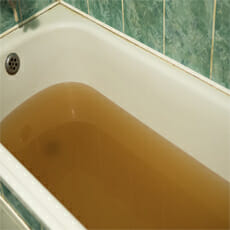
To address this issue, you can try using a plunger or a drain auger to clear the blockage. Plungers work by creating pressure to push or pull the blockage while draining augers or snakes are used to physically break up and remove the obstruction. However, it’s important to use these tools with caution and follow proper guidelines to avoid causing further damage to the pipes.
2. Gurgling Noises Coming from Drains or Toilets
Another common indication of blocked pipes is gurgling noises coming from drains or toilets. If you hear unusual noises, such as gurgling or bubbling sounds, when water is draining from your sinks, showers, or toilets, it could indicate a blockage in the pipes. Gurgling or bubbling sounds may occur when air tries to escape through the blocked area.
In such cases, it’s best to avoid using harsh chemicals or excessive force to clear the blockage, as it may cause further damage to the pipes. Instead, you can try using a plunger or a drain auger to clear the blockage gently. If the issue persists, it’s advisable to seek professional help to accurately diagnose and resolve the blockage.
3. Foul Odours Emanating from Drains or Pipes
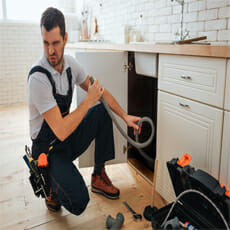
In such cases, using a drain cleaner or deodorizer may only provide temporary relief, as it may not address the root cause of the blockage. It’s important to identify and remove the blockage using appropriate methods or seek professional help to prevent the foul odours from recurring.
4. Water Backing Up or Overflowing from Drains or Toilets
When water starts backing up or overflowing from drains or toilets, it’s a clear indication of a blockage in the pipes. This can happen when the blockage is severe and prevents water from flowing freely through the pipes, leading to water backing up and overflowing from the lowest point, which is usually the drain or toilet.
If you encounter this issue, it’s crucial to take immediate action to prevent further damage and potential flooding in your home. Avoid using any plumbing fixtures that are affected by the blockage and turn off the water supply to the affected area, if possible. Then, call a professional plumber to assess and address the blockage promptly.
Related: How To Unclog an Overflowing Toilet? (4 Easy Tips)
5. Multiple Drainage Issues Occurring Simultaneously
If you notice that multiple drains in your home are experiencing issues simultaneously, such as slow drainage, gurgling noises, foul odours, or water backing up, it could indicate a larger issue with your plumbing system. This could be a sign of a blockage further down the main drain or sewer line that connects all the drains in your home.
In such cases, it’s essential to seek professional help to accurately diagnose the issue and address it effectively. Attempting DIY methods may not be sufficient to resolve the problem, and it’s important to avoid causing further damage to your plumbing system by relying on expert assistance.
Blocked Pipes – Factors and causes affecting it.
1. Accumulation of Debris
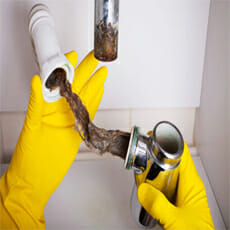
To prevent the accumulation of debris in your pipes, it’s essential to practice proper disposal habits. Avoid washing large food scraps, grease, or other materials down the drain, and use drain covers or traps to catch hair and other debris.
Regularly cleaning the drain covers or traps and using a drain cleaner or enzyme-based cleaner can also help prevent the buildup of debris in your pipes.
2. Tree Root Intrusions
Tree roots seeking moisture and nutrients can infiltrate your plumbing system through small cracks or joints in the pipes. Over time, these roots can grow and expand, causing blockages in the pipes and potentially damaging them. To prevent tree root intrusions, it’s important to be mindful of the location of trees and large plants in your yard in relation to your plumbing system.
Avoid planting trees or large plants too close to your pipes, and regularly inspect and maintain your pipes for any signs of root intrusions. Seeking professional help for tree root removal and pipe repair may be necessary if you encounter this issue.
3. Foreign Objects
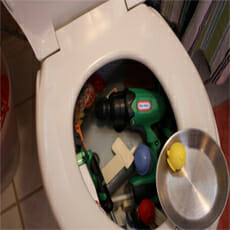
To prevent foreign objects from causing blockages, it’s important to educate everyone in your household about what should and should not be flushed or washed down the drain.
Installing a toilet paper dispenser that limits the amount of toilet paper used per flush and providing appropriate waste disposal options in the bathroom and kitchen can also help prevent this issue.
4. Corrosion or Deterioration of Pipes
Over time, pipes can corrode or deteriorate due to age, wear, and tear, or exposure to harsh chemicals or environmental factors. Corroded or deteriorated pipes can develop cracks, leaks, or collapses, which can lead to blockages in the pipes. To prevent corrosion or deterioration of pipes, it’s important to schedule regular maintenance and inspection of your plumbing system.
This can help identify any issues early on and prevent them from causing blockages or further damage. Using pH-neutral drain cleaners and avoiding harsh chemicals that can corrode pipes can also help prolong the lifespan of your pipes.
Also Read: How to Prevent Burst Pipes
5. Misaligned or Collapsed Pipes
Misaligned or collapsed pipes can occur due to shifting soil, ground movement, or poor installation. When pipes are misaligned or collapsed, it can disrupt the proper flow of water and cause blockages. To prevent misaligned or collapsed pipes, it’s crucial to have your plumbing system installed and maintained by qualified professionals.
Regular inspection and maintenance can help detect any misalignment or potential collapse of pipes early on and address the issue promptly. Avoiding heavy construction or landscaping activities near your plumbing system can also help prevent soil shifting or ground movement that could affect your pipes.
Related article: Top Common Signs of a Collapsed Drain Pipe
6. Grease Buildup
Over time, grease buildup can cause slow drainage, foul odours, and even complete blockages.
To prevent grease buildup in your pipes, it’s essential to, collect grease in a separate container and dispose of it properly in the trash. You can also use a grease trap or interceptor to capture grease and prevent it from entering your plumbing system.
Regularly cleaning your kitchen drain with hot water and a mixture of vinegar and baking soda can also help prevent grease buildup.
7. Hard Water Deposits
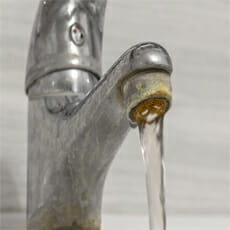
These devices can help reduce the levels of minerals in your water and prevent the formation of deposits in your pipes. Regularly flushing your pipes with hot water or using a descaling agent can also help remove existing deposits and prevent further buildup.
Consequences of Ignoring Blocked Pipes
Ignoring blocked pipes can have serious consequences for your home and your health. Some of the potential consequences of ignoring blocked pipes include:
1. Water Damage
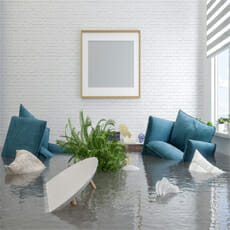
Water damage can also create an environment for mold and mildew growth, which can further damage your property and pose health risks. Mold and mildew thrive in damp conditions, and when water is allowed to stagnate due to blocked pipes, it provides the perfect breeding ground for these fungi. Mold and mildew can cause respiratory issues, allergies, and other health complications, making it essential to address water damage caused by blocked pipes promptly.
To mitigate the risk of water damage, it’s crucial to address blocked pipes as soon as you notice any signs of slow drainage, water backups, or overflowing fixtures. Avoiding the use of plumbing fixtures with blocked pipes and seeking professional help for repairs or clean-up can prevent further damage to your home and save you from costly repairs in the long run.
2. Plumbing System Damage
Continued use of plumbing fixtures with blocked pipes can put additional strain on your entire plumbing system, potentially causing damage to pipes, fittings, and other components. When water cannot flow freely due to blockages, it can create excessive pressure and stress on the pipes and fittings, leading to cracks, leaks, or even burst pipes.
The damage to your plumbing system can extend beyond the blocked area, as the increased pressure can impact other parts of the system. For instance, a blocked pipe in your bathroom may cause excessive pressure on other pipes, affecting the entire plumbing network in your home. This can result in extensive and costly repairs or replacements of damaged pipes, fittings, and other components.
To prevent plumbing system damage from blocked pipes, it’s crucial to address the issue promptly and avoid using plumbing fixtures that are experiencing slow drainage or backups. Seeking professional help to clear the blockage and inspect the entire plumbing system can identify any potential damage early on and prevent further issues.
If you are looking for plumbing services that can help you inspect the entire plumbing system. Check these links below:
3. Health Hazards
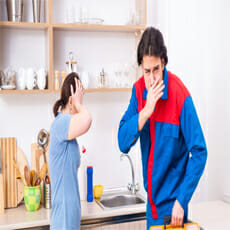
Foul odours emitted from blocked pipes can also contain harmful gases and pollutants that can impact indoor air quality and pose health risks when inhaled. Additionally, mold and mildew growth resulting from blocked pipes can release spores into the air, which can trigger respiratory issues and allergies in sensitive individuals.
To mitigate health hazards from blocked pipes, it’s important to address the issue promptly and thoroughly clean and disinfect the affected areas. Proper ventilation, use of personal protective equipment (PPE), and seeking professional help for thorough cleaning and mold remediation may be necessary to ensure a safe and healthy living environment.
4. Inconvenience and Disruption
Blocked pipes can cause inconvenience and disruption to your daily routine. Slow drainage, foul odours, and water backups can make it difficult to use your plumbing fixtures properly, leading to inconvenience in your everyday tasks. For example, a blocked kitchen sink may make it challenging to wash dishes or prepare food, while a blocked toilet can cause disruptions in your bathroom routine.
Blocked pipes can also result in the need to limit or avoid certain activities in your home. For instance, if you have a blocked shower drain, you may have to avoid taking showers until the issue is resolved, which can be inconvenient and disrupt your daily routine.
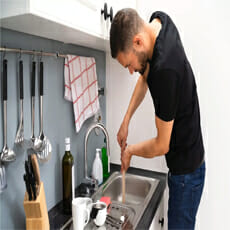
To minimize inconvenience and disruptions caused by blocked pipes, it’s important to address the issue promptly and seek professional help to clear the blockage and restore the proper functioning of your plumbing fixtures. Regular maintenance, such as routine drain cleaning and inspections, can also help prevent blockages from occurring in the first place and minimize the inconvenience and disruptions caused by blocked pipes.
In conclusion, ignoring blocked pipes can have significant consequences that can impact your home, health, and finances. Water damage, plumbing system damage, health hazards, inconvenience, and increased costs are some of the potential consequences of ignoring blocked pipes.
Promptly addressing blocked pipes, seeking professional help, and implementing preventive measures can help mitigate these consequences and ensure the proper functioning of your plumbing system. Regular maintenance, such as routine drain cleaning and inspections, can also help prevent blockages and minimize the risks associated with blocked pipes.
Remember, prevention is always better than cure when it comes to plumbing issues, so don’t ignore blocked pipes and take appropriate actions to address them promptly.
The Bottom Line
Blocked pipes are a common plumbing issue that can cause a variety of problems in your home. Understanding the signs of blocked pipes, the common causes, and the potential consequences of ignoring the issue is crucial for maintaining a healthy and functional plumbing system.
By practicing proper disposal habits, scheduling regular maintenance and inspection, avoiding the use of harsh chemicals, and seeking professional help when needed, you can prevent the blockage of pipes.
Contact Damien McEvoy Plumbing today at (02) 8599 4593 and get a free quote!

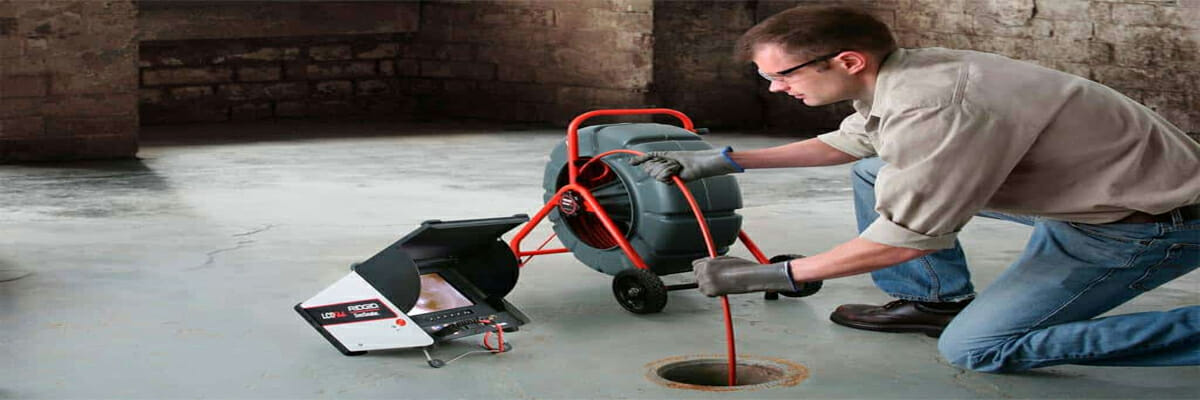
 Enquire
Enquire